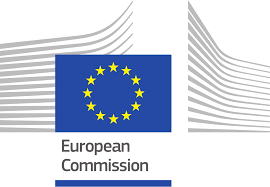On 5 July 2016, the European Commission (the “Commission”), adopted proposals to further reinforce EU rules on anti-money laundering, counter terrorist financing and increase transparency of ownership for both companies and trusts. According to the Commission, this proposal is the first initiative to implement the Action Plan for strengthening the fight against terrorist financing.
With regard to countering terrorism financing, the Action Plan highlights the following points:
- EU Financial Intelligence Units will have increased powers:Financial Intelligence Units will have swift access to information in centralized bank and payment account registers and central data retrieval systems, which Member States will have to establish to identify holders of bank and payment accounts
- Tackling terrorist financing risks linked to virtual currencies:Virtual currency exchange platforms, custodian wallet providers will be under the scope of the Anti-Money Laundering Directive, ending the anonymity associated with such exchanges
- Tackling risks linked to anonymous pre-paid instruments (e.g. pre-paid cards): Lowering the thresholds for identification from €250 to €150 on pre-paid cards, and widening customer verification requirements to minimize their use as anonymous payments vehicle
- Stronger checks on risky third countries:In line with the Risk-Based Approach banks will have to carry out additional checks (‘enhanced due diligence measures’) on financial flows from countries with deficiencies in their anti-money laundering and countering terrorist financing regimes.
The Action Plan also proposes stricter transparency rules to prevent tax avoidance and money laundering, which highlights:
- Full public access to the beneficial ownership registers:Member States will make public certain information of the beneficial ownership registers on companies and business-related trusts. The threshold on beneficial owners is 10% for companies that present a risk of being used for money laundering and tax evasion for all other companies the threshold remains at 25%.
- Interconnection of the registers: The direct interconnection of the registers to facilitate cooperation between Member States.
Extending the information available to authorities: The Panama Papers highlighted areas where further enhancements would be advisable. Existing, as well as new, accounts should be subject to due diligence controls. This will prevent accounts that are potentially used for illicit activities or avoiding taxation from escaping detection.
The Action Plan could also have an impact on the transposition of the Fourth AMLD by Member States. 26 June 2017 is the formal transposition date for the fourth AMLD. In an effort to strengthen the fight against terrorism financing of 2 February 2016, the Commission called on Member States to move the effective transposition date of the directive forward to the end of 2016.
Content for this blog can be found at the following links:
http://europa.eu/rapid/press-release_IP-16-2380_en.htm
http://europa.eu/rapid/press-release_MEMO-16-2381_en.htm
Posted by Paul Hamilton



